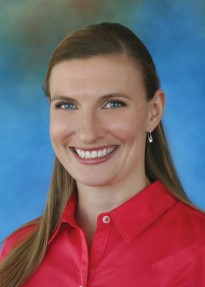Andrea J. Cook, PhD
Biography
Andrea Cook, PhD, is a biostatistician whose work focuses on leveraging available data such as electronic health records (EHRs) to efficiently address important public health questions and improve the overall health of our population. Dr. Cook has developed research methods using EHRs and other existing health care data for major initiatives led by the National Institutes of Health (NIH), the Centers for Disease Control and Prevention (CDC), and the U.S. Food and Drug Administration (FDA). Her work spans many areas, including hypertension control, cancer screening, obesity, diabetes, built environment, and alternative medicine for pain.
The goal of Dr. Cook’s research is finding interventions that improve patient care. She studies how pragmatic clinical trials, which are conducted under real-world conditions in health care organizations such as Kaiser Permanente Washington, can deliver more effective care and improve patient outcomes. Dr. Cook is a lead biostatistician for the Biostatistics and Study Design Core of the NIH Collaboratory, which facilitates the implementation of pragmatic clinical trials. She addresses the numerous statistical challenges of pragmatic clinical trials including how to design studies to answer research questions without impeding the delivery of care and how to use EHRs for more cost-effective studies.
Dr. Cook also studies how to use EHR data to improve the way we monitor the safety of new medical products including vaccines, drugs, and medical devices. She contributes to the FDA Sentinel Initiative and the CDC Vaccine Safety Datalink and has led the development of new statistical methods for actively monitoring medical products for rare adverse events using distributed data networks.
Dr. Cook obtained her PhD in biostatistics from the Harvard T.H. Chan School of Public Health in 2005. She is a member of the American Statistical Association and the Western North American Region of the International Biometric Society. She is also an affiliate professor in biostatistics at the University of Washington.
Research interests and experience
-
Biostatistics
Causal inference; clinical trials; longitudinal data analysis; survival analysis; spatial statistics; nonparametrics; rare disease outcomes; missing data; electronic data; distributed data; postmarketing drug and vaccine safety; study design and analysis -
Vaccines & Infectious Diseases
Vaccine safety; methods for observational studies -
Obesity
Role of built environment; obesity prevention and control; nutrition
-
Complementary & Integrative Health
Comparative effectiveness methods -
Medication Use & Patient Safety
Analysis of longitudinal data; sequential methods
-
Behavior Change
Physical activity; nutrition; built environment
Recent publications
Jackson SL, Cook AJ, Miglioretti DL, Carney PA, Geller BM, Onega T, Rosenberg RD, Brenner RJ, Elmore JG. Are radiologists' goals for mammography accuracy consistent with published recommendations? Acad Radiol. 2012 Mar;19(3):289-95. Epub 2011 Nov 30. PubMed
Nelson JC, Cook AJ, Yu O, Dominguez C, Zhao S, Greene SK, Fireman BH, Jacobsen SJ, Weintraub ES, Jackson LA. Challenges in the design and analysis of sequentially monitored postmarket safety surveillance evaluations using electronic observational health care data. Pharmacoepidemiol Drug Saf. 2012 Jan;21 Suppl 1:62-71. doi: 10.1002/pds.2324. PubMed
Cook AJ, Tiwari RC, Wellman RD, Heckbert SR, Li L, Heagerty P, Marsh T, Nelson JC. Statistical approaches to group sequential monitoring of postmarket safety surveillance data: current state of the art for use in the Mini-Sentinel pilot. Pharmacoepidemiol Drug Saf. 2012;21 Suppl 1:72-81. doi: 10.1002/pds.2320. PubMed
Green B, Anderson M, Fishman P, Reid R, Catz S, McClure J, Cook A. Electronic health record-based cardiovascular risk assessment and the use of BMI when laboratory data is not available. Clin Med Res. 2011;9(3-4):151-152. PubMed
Research

Neighborhood density connected to changes in body mass index for children
Study uses geographic data to track change over time.
Research

Can where you move impact future weight gain?
A new study finds that moving from low- to high-density neighborhoods might be related to reductions in weight gain.
Research

Built environment plays little role in weight gain
New research suggests fast food and other aspects of built environments don’t affect weight, contrary to earlier findings.



